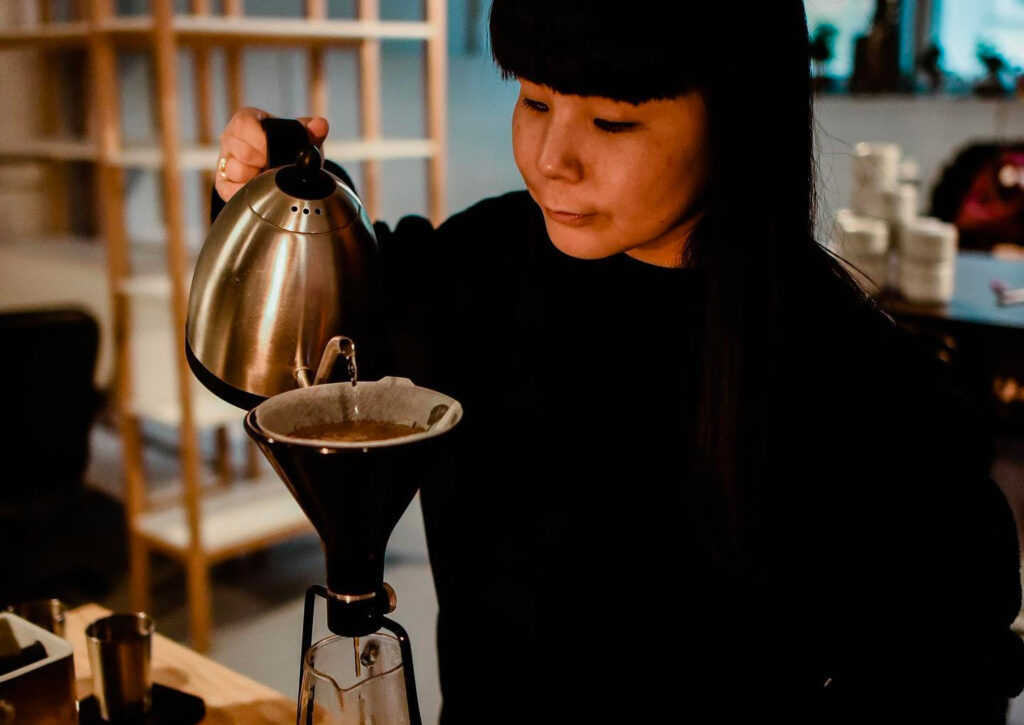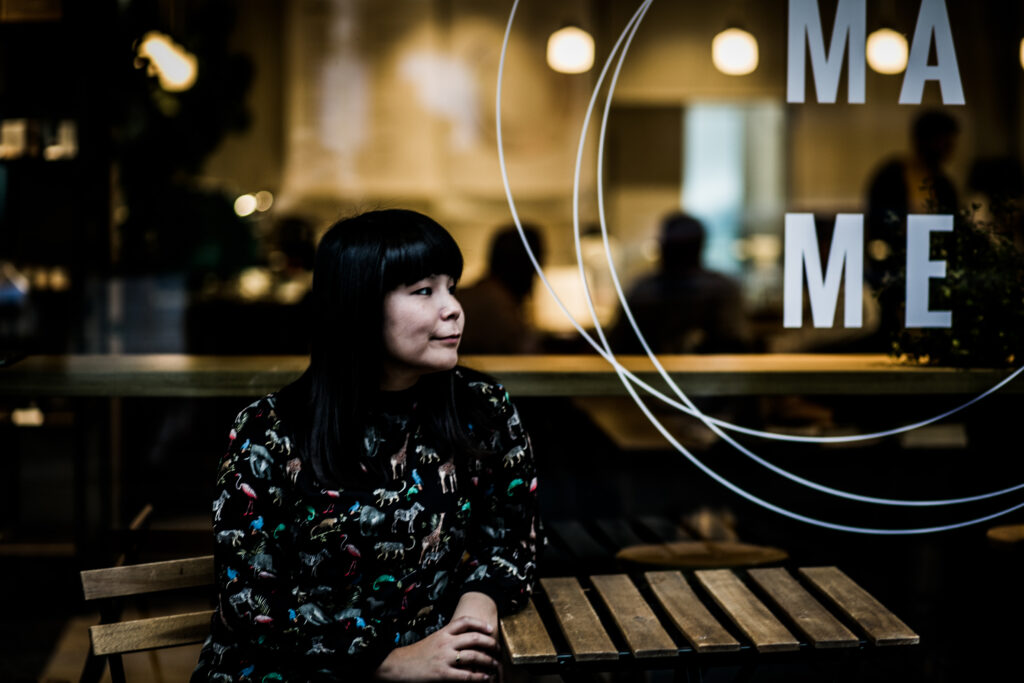Barista Emi Fukahori didn’t drink coffee until she was in her twenties. Then it became her life: today she is among the best baristas in the world, co-owns two coffee shops in Zürich, and spends her days finding flavours in coffee that most of us didn’t know existed. We talked with the Japanese innovator about how her curiosity first turned into a passion and then into a business.
Ms. Fukahori, most people consider coffee a commodity. Why is this beverage so fascinating to you?
That’s true, a lot of people drink coffee without thinking about it. But there is a whole world of flavors hidden in a coffee. It can, for example, be fruity, chocolatey, or spicy – and it is the job of a barista to bring out these nuances. When done properly coffee can taste like almost anything.
What distinguishes a good coffee from a great coffee?
“The best coffee is the coffee you like” – that’s the motto we have in our coffee shops. Baristas can’t serve you a perfect coffee, but they can help you discover one you like. This is often difficult since most people have never been exposed to the depths of specialty coffee. I thus try to get to know my customers, learn what they like, and then assist them in finding a coffee they consider great.
Has coffee always played an important role in your life?
Not at all. I only started drinking coffee when I moved to Zürich a decade ago. It was a nice social activity, but I didn’t know anything about the processes involved. A few years later I went to a social gathering at a roastery, where I was introduced to a barista champion and to the fascinating world of specialty coffee. I still remember being served a coffee that tasted like strawberries. It was so different from any coffee that I had drunk before and made me curious: Where did this flavor come from? How does the barista get it out of the beans? For the next six months, I went to the roastery every day after work as I wanted to learn more. The owners taught me what they knew about coffee and it has been an important part of my life ever since.

Wealth is knowing what you love and being allowed to do it continuously.
You started participating in competitions and after only a few years were crowned the world’s best coffee brewer. How did you achieve this?
I never competed to win. My main motivation for competitions was to learn as much as possible – and I think this is the reason why I was successful. I wanted to learn more about coffee, but also about myself, and about ways to present a product to a large audience. When I won the Swiss national championship in 2015, I was totally surprised. Most of the other participants were professional baristas, while I was just an amateur who liked coffee. I then had the honor of representing Switzerland at the world championship. Competitions are a great opportunity for anybody to deeply understand all facets of a topic. It’s crazy how fast you learn by preparing and participating in a competition.

While Emi Fukahori is talking to us, her team is roasting coffee. Sounds of rustling beans mix with whistling pipes and friendly chit-chat. They do this twice a week in their own factory. Apart from the roastery, Fukahori and her partner Mathieu Theis own two coffee shops in Zürich. They’re called “Mame”, which is Japanese for “bean”. The online reviews of the shops are exceptional – despite comparably high prices. However, the owners not only want to sell tasty beverages but build a community of coffee aficionados in Zürich.
Do you have any recommendations for people who are still at the beginning of their careers?
Try finding what you like, recognize it, and analyze how you can become great at it. I found my purpose in making excellent coffee, but it can be anything.
You discovered your passion by coincidence. How can others find an area they are similarly interested in?
You should try as many things as you can – that’s also how I discovered coffee. Especially if you are young and don’t have any responsibilities, it’s very easy to give something a shot without any pressure. Then you can keep asking yourself: Do I like this? Do I want to pursue it further? The next step is usually to surround yourself with people who are passionate about the same thing. That’s what I enjoyed most when going to competitions; seeing how other people were also crazy about coffee. And this is true for any type of industry: Watch other people, talk to them, and try to learn from them. If it’s not your thing, you can just quit. You might make a mistake from time to time, but if you learn from it, it’s not a failure.
What does wealth mean to you?
For me it’s quite simple: Wealth is knowing what you love and being allowed to do it continuously. I’m fortunate enough to have two coffee shops and a fantastic team by my side; I couldn’t wish for anything else.
A lot of people associate wealth with financial assets. Does money play an important role in your life?
I save money in order to spend it on what I like. That’s what my father always said: “Save it, but spend it.” I’ll give you an example: If we discover some amazing coffee beans in a foreign region, I will buy these beans in big quantities. This is often not cheap, but it is what matters to me, so I’m happy to make these kinds of purchases.
Your business partner is also your life partner. How do you manage these two relationships?
It’s wonderful: As he shares my passion for coffee, I never have to justify myself for anything. It makes it easier to understand each other. But since we also have a business together, it can feel like everything is always about work, work, work. Fortunately, next month we will finally have a chance to go on vacation together for two weeks.
Does this mean you will have some time away from coffee?
(laughs) Not really. We’re going to Costa Rica to visit coffee farmers and discuss new products with them. This is the only kind of vacation we do, but I wouldn’t want it any other way.
We are looking forward to trying the coffees you discover. Thank you for taking the time to do this interview.




